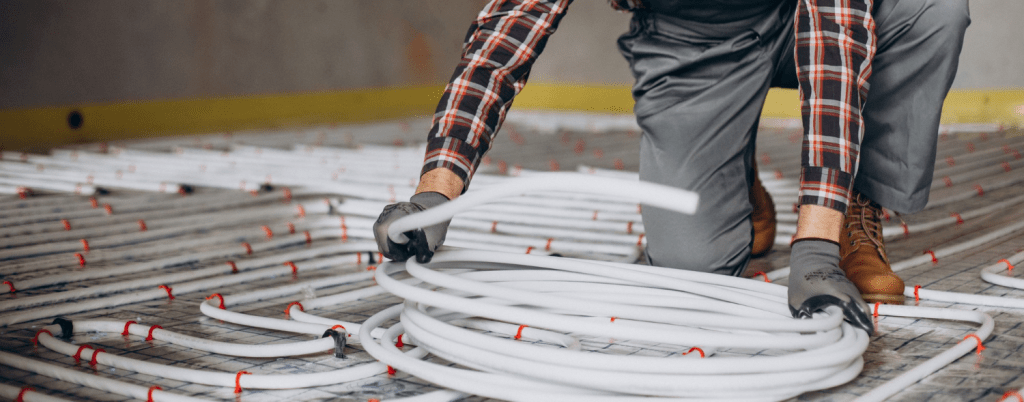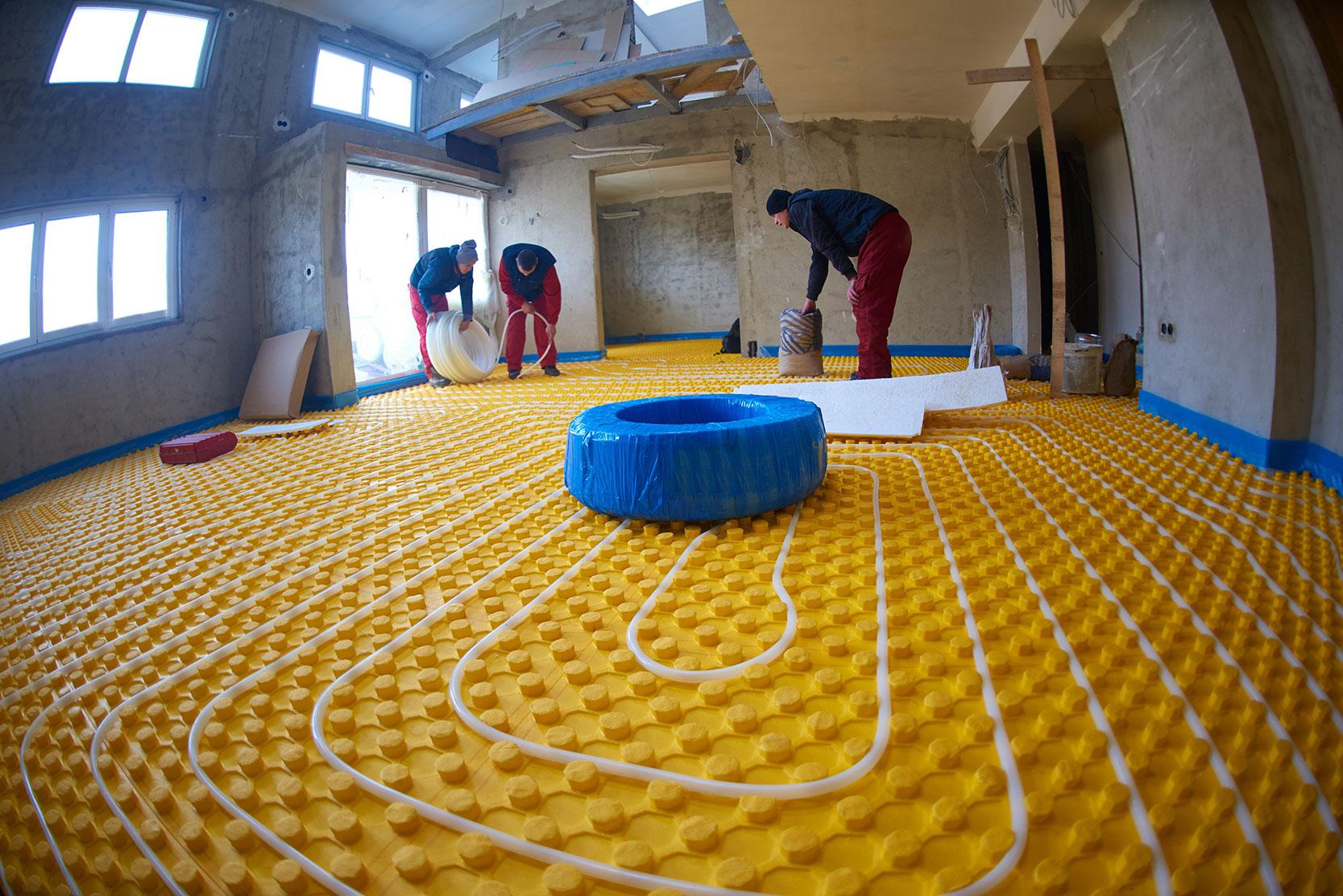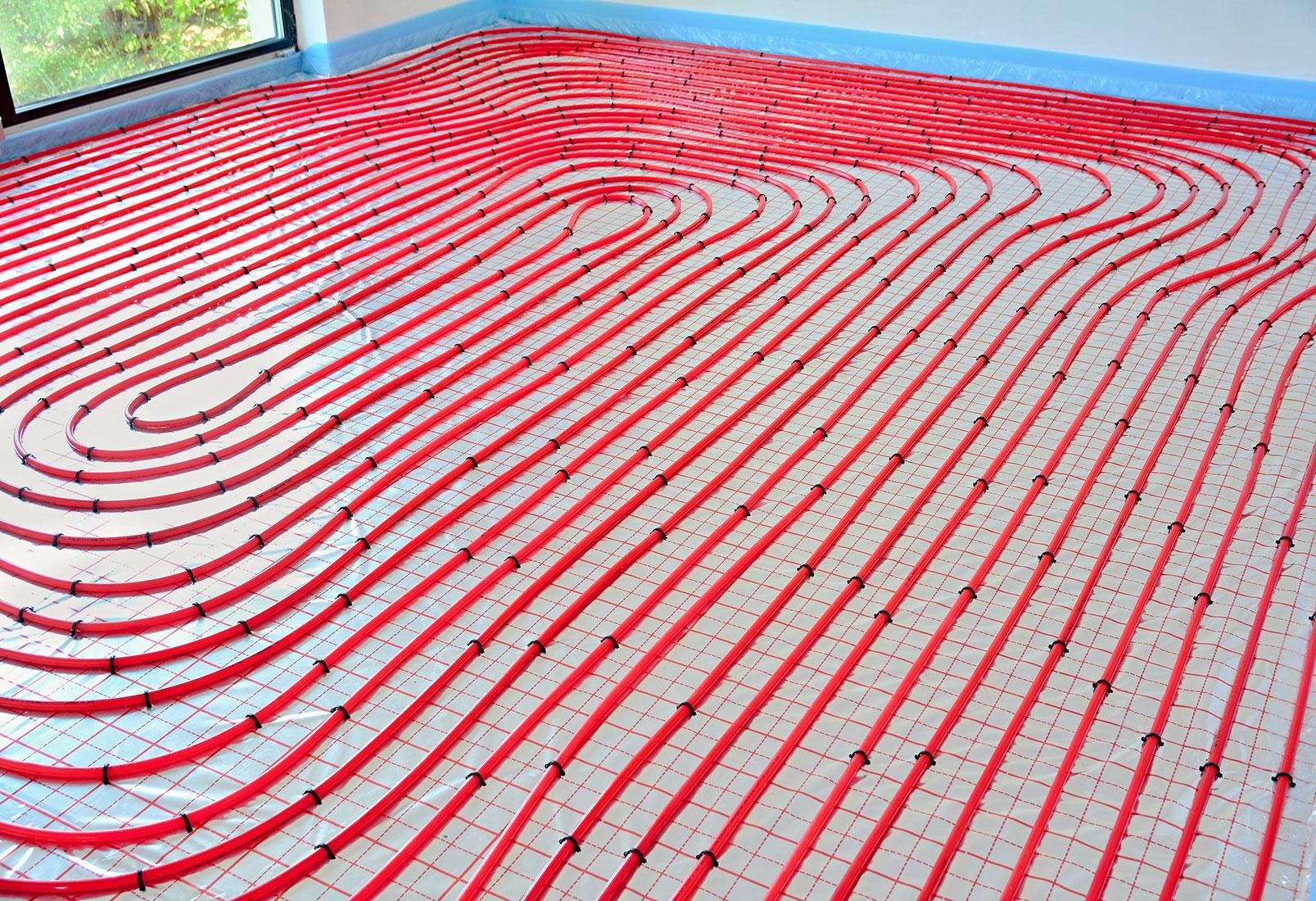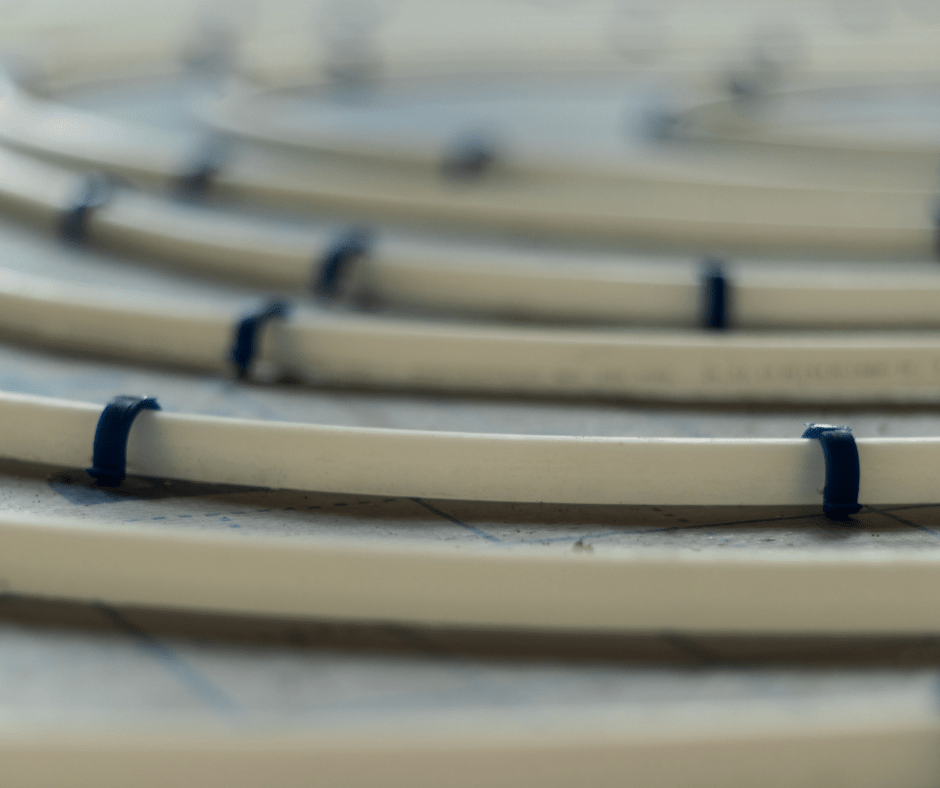17
May 2023
Is Electric Or Wet Underfloor Heating The Best?
Underfloor heating is becoming more popular in the UK. It is now the sole central heating source for new builds and renovation projects. The UK is catching up to the Scandinavian model, where 80% of properties use underfloor heating as the sole heat source.
Underfloor heating has many benefits, such as energy efficiency, economy, sustainability, and freedom of interior design without radiators! However, there are two types of underfloor heating, electric and wet, so what is best? This blog will review the differences between the two underfloor heating systems so you can make the right decision.
What Type Of Underfloor Heating Is Best?
There are two types of underfloor heating systems, warm water and electric. Wet systems are like traditional central heating systems where water is heated at a point ad pumped around the property by various pipes.
Electric underfloor heating systems are usually either loose cables or cables installed into mesh mats; this is laid onto an existing substrate, covered with a thin screen, and then connected to a thermostat.

Benefits of Wet Underfloor Heating Systems
Energy Efficient
Water underfloor heating is more energy efficient than a traditional radiator. The pipes cover a larger surface area than a traditional radiator. By heating a room more efficiently, the system does not need to be used for a long time to create a warm space. Water can also be used at a lower temperature as heat is spread more evenly. Therefore you have greater energy efficiency as you need less power to heat the space. They are also more heat-efficient than electric systems.
Cheaper To Run
Wet underfloor heating systems use less energy and are cheaper to run. Wet underfloor heating systems can reduce your energy bill by 25%! However, this depends on where you place the wet underfloor heating system.
Can Use A Variety Of Heat Sources
Wet underfloor heating systems can use various heat sources to run, meaning renewable heat sources. These include air source and ground source heat pumps. Therefore, it can also reduce your energy bill.
Benefits of Electric Underfloor Heating Systems
Slimmer
Electric underfloor heating systems are slimmer and occupy less space than wet underfloor heating systems. You will most likely need a baking board for insulation to limit heat loss. However, the wires are slimmer, and the system can sit closer to the surface. Due to the system being closer to the surface, it can heat a room faster.
Smaller Rooms
As electric underfloor heating is closer to the surface, it is most suitable for areas where you need a small amount of heat for a short time, as it can generally cause heat spots.
Easy-To-Install
With electric underfloor heating, no manifold is needed. Therefore, installing it in one room without disrupting adjoining spaces is simple.
What System Is Suitable For What Area?
Water underfloor heating systems are suitable for any space and area. However, it takes a little knowledge to understand what works best where. A new build usually needs a screen underfloor heating system where the underfloor heating tube is half within a screed layer. It also needs a screed replacement system. Upper floors are not excluded from water underfloor heating systems as the tube can be fitted between the joists on the upper floors.
Electric underfloor heating systems can be used throughout a home. However, they are best suited in smaller areas such as an ensuite or a kitchen.


Electric Vs Wet Underfloor Heating System
Installing an underfloor heating system to replace traditional radiators is not only aesthetically pleasing. Still, it is also great for keeping your space clean as no radiators generate dust or dirt around it. In addition, both underfloor heating systems do not expose hot surfaces or sharp edges, making them a safer option for your heating. They are also an effective alternative for people suffering from allergies as they provide heat free of drafts and dust movements, which can provoke allergies. Therefore, homeowners will pay for a home with underfloor heating installed if you renovate your property.
If you are considering installing an underfloor heating system, contact us today. Our friendly team of underfloor heating experts would love to help you. We will advise you on the most suitable and cost-effective system for your project.
